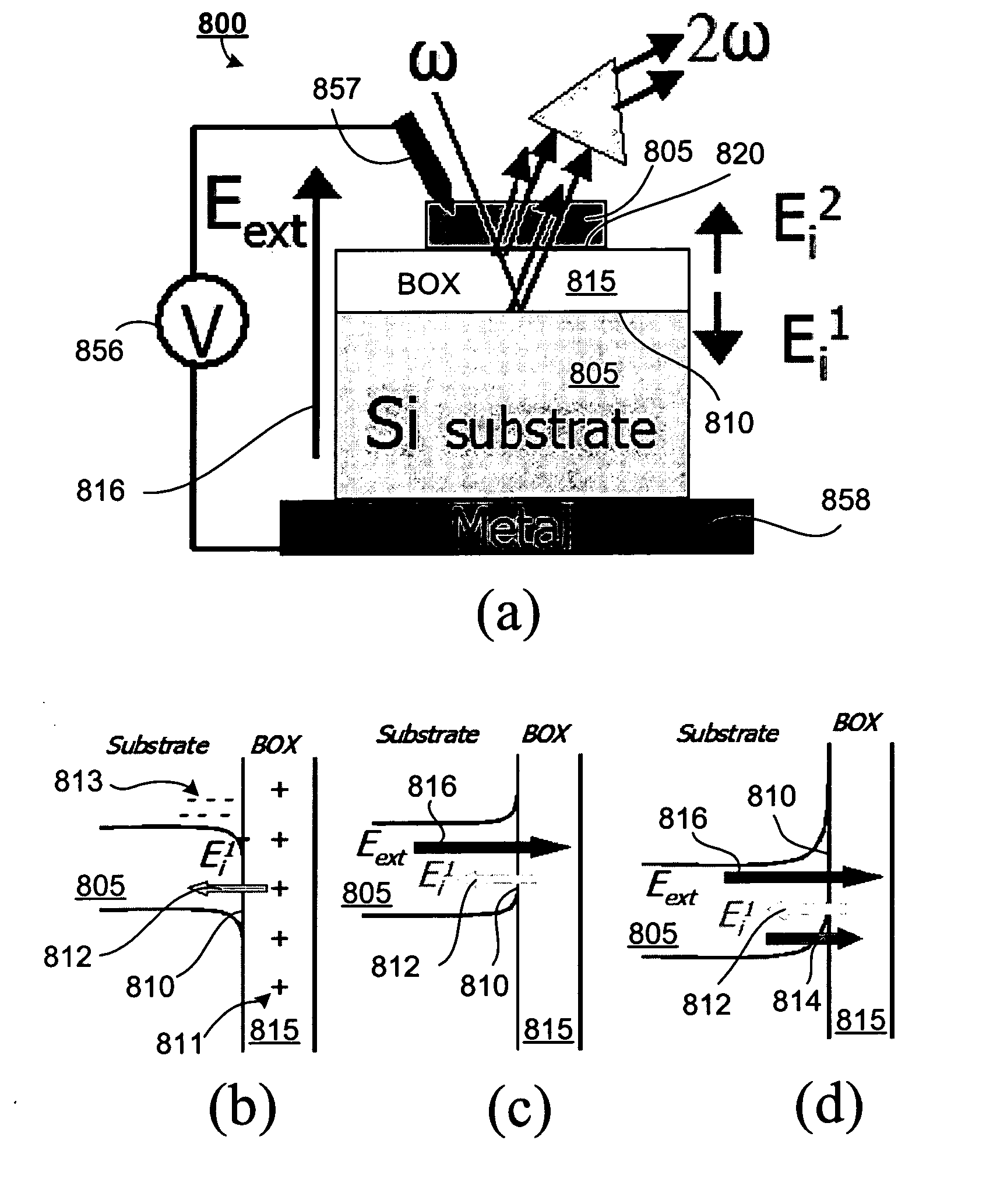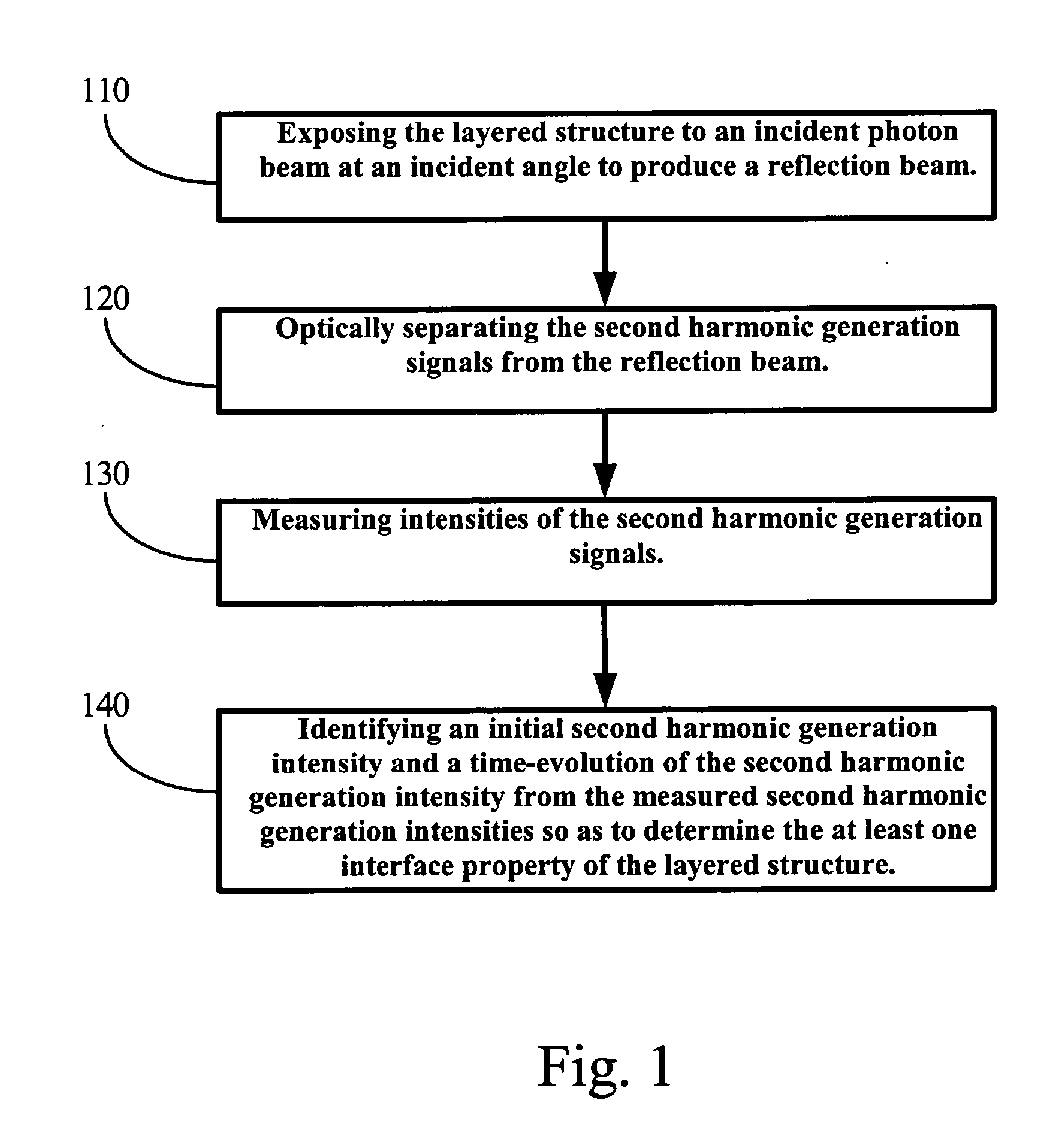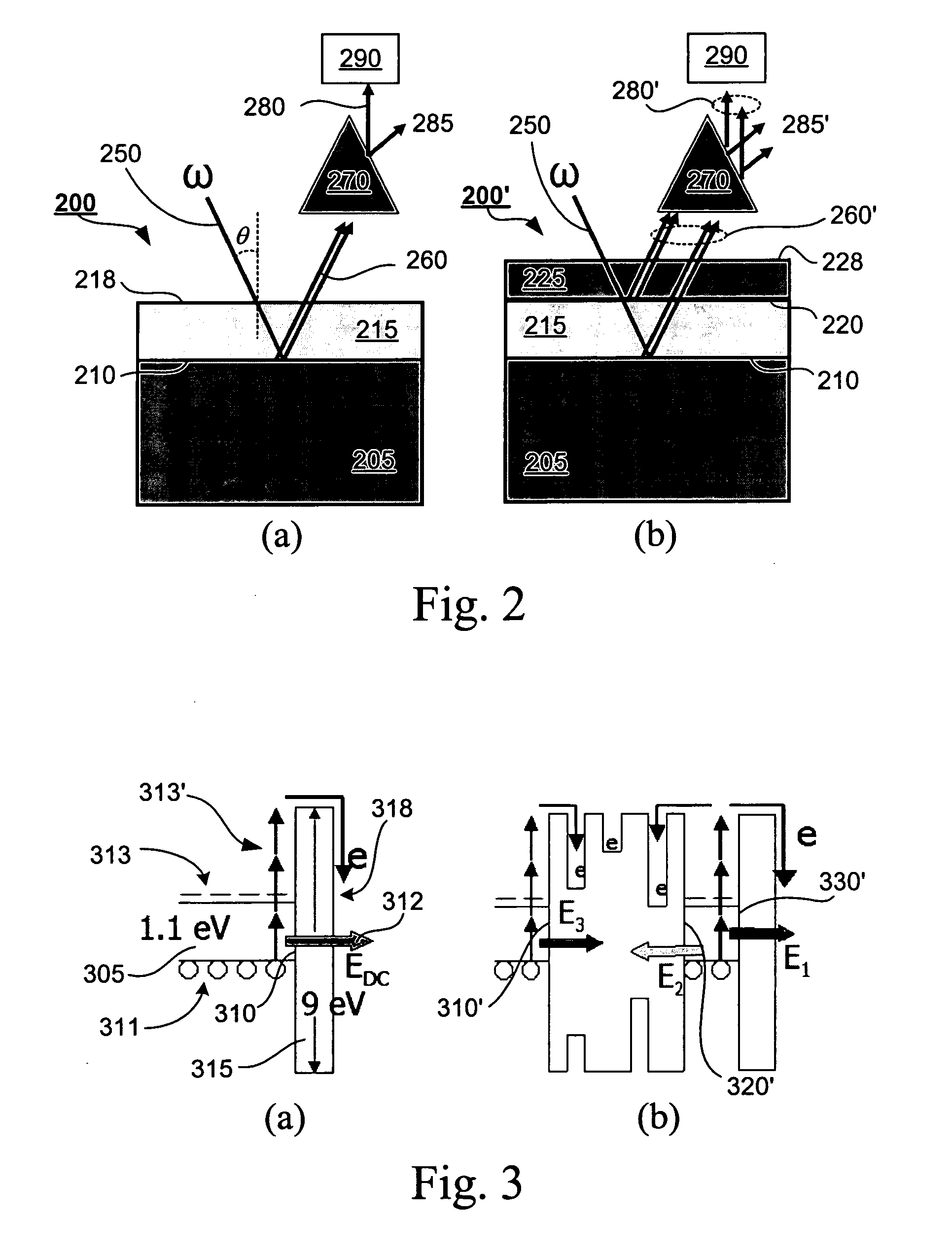Apparatus and methods of using second harmonic generation as a non-invasive optical probe for interface properties in layered structures
a technology of interface properties and second harmonic generation, applied in the field of layered structures, can solve problems such as the absence of shg application
- Summary
- Abstract
- Description
- Claims
- Application Information
AI Technical Summary
Benefits of technology
Problems solved by technology
Method used
Image
Examples
example
Characterization of SOI Wafers
[0059] Referring now to FIG. 4, a cross-sectional view of a sample SOI wafer used to practice the present invention is shown. In one embodiment, a UNIBOND™ SOI wafer (SOITEC USA Inc., Peabody, Mass.) is employed to practice the present invention. Other SOI wafers can also be employed to practice the present invention. As shown in FIG. 4a, an SOI wafer 400 has a silicon (hereinafter “Si”) substrate 405, a BOX layer 415 bonded on the Si substrate 405 to form a first Si / SiO2 interface 410 therebetween the Si substrate 405 and the BOX layer 415, a Si layer 425 deposited on the BOX layer 415 to form a second Si / SiO2 interface 420 therebetween the BOX layer 415 and the Si layer 425. Additionally, the SOI wafer 400 has an oxide layer 435 natively grown on the Si layer 425 to form a third Si / SiO2 interface 430 therebetween the Si layer 425 and the native oxide layer 435. After the SOI wafer 400 is fabricated, a dry etch technique is used to define Si islands s...
PUM
| Property | Measurement | Unit |
|---|---|---|
| wavelength | aaaaa | aaaaa |
| wavelength | aaaaa | aaaaa |
| diameter | aaaaa | aaaaa |
Abstract
Description
Claims
Application Information
 Login to View More
Login to View More - R&D
- Intellectual Property
- Life Sciences
- Materials
- Tech Scout
- Unparalleled Data Quality
- Higher Quality Content
- 60% Fewer Hallucinations
Browse by: Latest US Patents, China's latest patents, Technical Efficacy Thesaurus, Application Domain, Technology Topic, Popular Technical Reports.
© 2025 PatSnap. All rights reserved.Legal|Privacy policy|Modern Slavery Act Transparency Statement|Sitemap|About US| Contact US: help@patsnap.com



